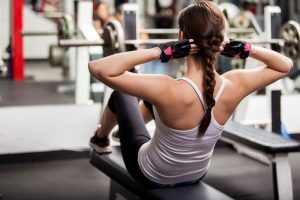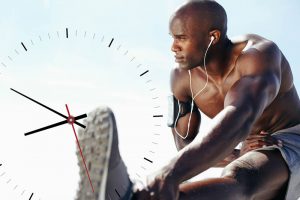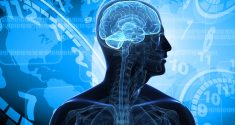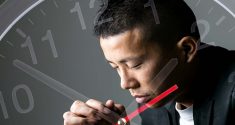Chronobiology is a somewhat obscure scientific specialization. In fact, most people have never even heard of it. Even so, for those of us looking to optimize physical performance, workout gains and so forth, it may just be the solution to many relevant questions and problems. Of course, the intersection of time and one’s own biological processes can require some patient adjustment to produce optimal results. Rushing or forcing adjustments will only prove to be a waste of time and effort.
Chronobiology: A Brief Primer
First, let’s establish a couple of definitions. Chronobiology is the scientific study of an organism’s unique biological rhythms and the effects such rhythms have upon the biological processes of the organism in question. A human being’s circadian rhythm, a major focus of chronobiology, is the biological clock responsible for the regulation of several processes within the body including various aspects of organ function, blood flow and sleep cycles.
Adjusting Your Circadian Rhythm for Peak Performance

One thing to be aware of, should you attempt to modify your body’s internal clock in this way, is the fact that a natural inclination toward morning, afternoon or evening exercise is almost certainly an indication of your body’s innate point of best fit. In other words, if you prefer to work out at a specific time, it’s likely because that’s your peak performance time. As such, you shouldn’t ignore these impulses if you can help it. It’s always best to listen to your body’s natural cues and messages. Even so, be aware that your circadian rhythm does have a sort of reset button in that it can be trained to adapt to your needs and schedule. This is good news for those people who deal with things such as shift work, overseas travel or training regimens for certain athletic activities, all of which can exert high levels of demand upon the body.
Biological Hindrances to Workout Success
Research is ongoing about the definitive answer to the question of best exercise times (preliminary findings point toward the noon hour and those immediately surrounding it). What is clear is the negative impact that certain actions can have on a person who acts in opposition to his or her individual circadian biology. Examples follow:
- Sleep deprivation: Late nights, whatever the reason, have a marked effect on one’s endurance, power and other markers of athletic performance. Try to avoid them.
- As a corollary, there is a debate about late-night exercise and late-night stimulants such as caffeine or food consumption. Until more conclusive findings related to nocturnal training are made available, proceed under the direction of a physician.
- Physical and mental output can suffer during one’s circadian rhythm adjustment period. Those attempting to reset their circadian clocks should expect something of a slump in performance for approximately 30 days, after which normal functionality should return.
- Favoring exercise over sleep at the expense of the latter has been shown to hinder performance regardless of one’s natural rhythmic settings. When in doubt, choose a good night’s sleep over another training session or workout.
Biological Performance Enhancers

- In addition to helping regulate things like organ function and blood flow, your circadian rhythm has an influence on your body temperature. To be succinct, a person’s body temperature tends to match the peaks and valleys of their circadian rhythm. As such, timing a workout to correspond to the highest point of your body’s metabolic output, sometime between 4 and 5 p.m. or late afternoon, is far superior to working out soon after waking, at which time the human body is near its coolest internal temperature, and therefore, less inclined to physical exertion, more prone to stress-related injury and so on.
- While peak endurance, maximum flexibility and heightened injury resistance are all products of a late afternoon exercise routine, research shows morning exercisers have a greater degree of consistency.
- Flexibility and the risk of injury are inversely related, with each reaching their respective high and low points in the aforementioned late afternoon exercise window.
- While largely anecdotal in nature, there are some reports of exercise in the hours immediately preceding sleep having a beneficial effect on sleep quality. However, other reports claim the opposite and as such, evening exercise remains largely a matter of personal choice.
It’s All About Individual Preference
The relationship between a person’s internal clock, the processes that clock regulates and one’s exercise results is a delicate, interwoven balance. Research is ongoing in many areas, which means hard evidence and definite answers to questions can sometimes be scarce. However, at the end of the day, the individual holds the key to his or her own success. The individual’s circadian rhythm can be adjusted to suit one’s own schedule and preferences. With this handy reference, it should not prove difficult for the average person to achieve their goals with a maximum degree efficiency and enjoyment.







